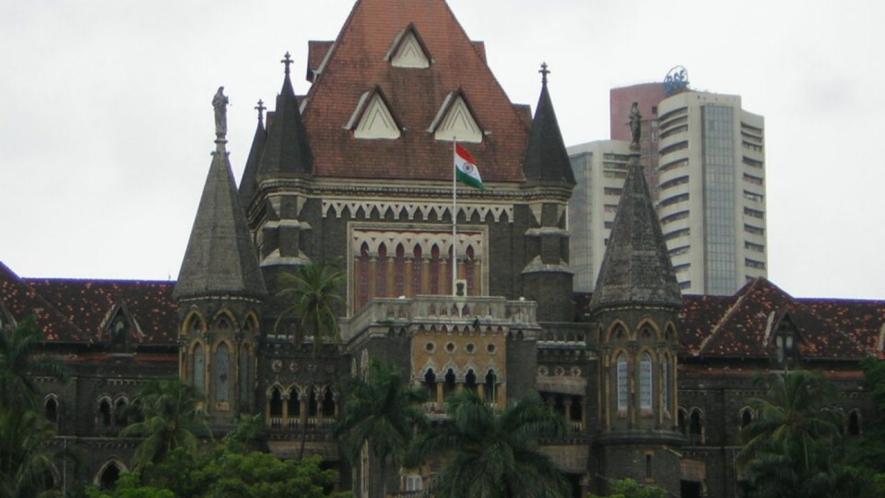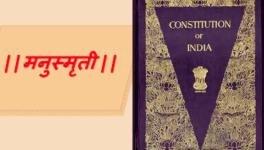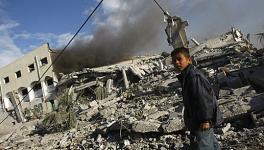Citizens as Infants? Judiciary ‘Schools’ People in Patriotism

Image Courtesy: Wikimedia Commons
It was the year 1763, when Genevaís ecclesiastical assembly ordered one Robert Covelle to genuflect and listen to a reprimand for having fathered an illegitimate child. Covelle refused to kneel and turned to Voltaire for help.
Voltaire, a leading light of enlightenment, outraged at the very idea that religious authorities daring to make a citizen kneel, wrote a pamphlet against genuflection comparing the act with a tyrant punishing slaves or pedant correcting children. The rest of the philosophes rallied behind Voltaire and after six years of agitation, the Genevaís ecclesiastical assembly was forced to abolish genuflection from its code
Meera Nanda, writer and historian of science discusses, this episode in one of her monographs
Rereading this episode and seeing if around two-and-half centuries ago, the Church could be compelled to see incongruence, injustice and unreason in its own ruling, can a a similar thing be possible vis-à-vis the judiciary in the 21st century in the 'biggest democracy in the world'?
This poser is related to a recent debatable decision of the Bombay High Court, which has rightly received enough opprobrium.
Last week, a two-judge bench of the Bombay High Court cancelled a permission for a peaceful rally by a political party against the genocide in Gaza, terming “this is not patriotism.” The political party wanted to lodge a peaceful protest in Azad Maidan, a designated place for protests in the city of Mumbai. The honourable judges had no qualms even in literally sermonising the party that instead of “protesting on something happening thousands of miles outside the country”, it takes up civic issues like “garbage dumping, pollution, sewerage, flooding” etc.
Apart from the fact that this decision essentially denied the right to freedom of expression and right to assembly -- granted to every citizen under Articles 19 (1) (a) and 19 (1) (b) of the Indian Constitution, which are 'foundational to the democratic life of the republic', it was highly problematic on various counts.
One, it displayed selective amnesia about developments around the world, which have raised consternation globally
Two, it showed a lack of knowledge or deliberate invisibilising of the glorious traditions of our anti-colonial struggle or policies adopted by post-Independence regimes regarding issues of crimes against humanity
Three, it showed double standards of the judiciary which reacts differently when Right-wing formations lodge protests -- sometimes violent as well -- on dubious issues.
Four, it also manifested the ease with which, of late, the judiciary has abandoned its constitutionally warranted autonomous role as a guardrail of democracy and behaving as executive's court.
Let us hope that the judiciary -- may be a larger bench or the highest courts of the country -- would sincerely look at the various inherent follies of the particular judgement and suggest a course correction that would help save the sanctity of our Constitution.
Let's take up these key aspects of the decision one by one.
1. War Criminals Benjamin Netanyahu and his former defence minister, Yoav Gallant. Any doubt?
The ongoing genocide at Gaza is now more than one year and nine months old, which the Israeli State, with all its military might and added military and moral support from the US and its Western allies, have unleashed against the hapless residents of Gaza, as a mark of retribution against the terrorist attack undertaken a by the radical Hamas on Israeli territory (October 7, 2023)
The world at large has noticed this ongoing genocide in this small area which has killed till date more than 70,000 people, most of them women and children. Recently, journalists and medical workers -- doctors, nurses etc -- active in the region have raised the spectre of mass starvation of children and how it is effecting even their own bodies.
It is now history that how even the International Criminal Court (ICC) has debated this issue when South Africa and few other countries, initiated proceedings against Israel for war crimes and ongoing genocide at Gaza. After much deliberation, the ICC was forced to issue arrest warrants for Israeli Prime Minister Benjamin Netanyahu and his former defence minister, Yoav Gallant, “for crimes against humanity and war crimes committed from at least 8 October 2023 until at least 20 May 2024”, and even a senior leader of the Hamas
Although a final decision of the ICC is still awaited, this interim decision means Netanyahu and Gallant could, in theory, be arrested if they travel to any of the court’s 124-member states.
Two months ago, when Netanyahu travelled to Hungary, the Amnesty International had even issued an appeal for his arrest.
2. Anti-colonial and post-Independent India’s stand on Palestine
It is now history how South Africa took initiative in bringing before the International Court of Justice on December 29, 2023, regarding Israel's conduct in the Gaza Strip during the Gaza war, that resulted in a humanitarian crisis and mass killings. Recently, Brazil has also announced that it would join South Africa in its official case against Israel
It is a different matter that India, which loves to call itself the world's biggest democracy, has till date refused to take a principled stand around ongoing genocide in Gaza and has even refused to join resolutions in the UN Assembly that called for ceasefire in the military operations. This is a stand contrary to how leaders of the anti-colonial struggle and later regimes in post-Independent India took a principled stand on the issue. Gandhi had even refused to support the demand for a Jewish state in then colonised Palestine, underlining how it will be completely unjust to them, and India was the first country outside the Arab world that had recognised Palestine.
India did not deter from support to Palestinian struggle even during Atal Bihari Vajpayee’s National Democratic Alliance regime.
India's stand on the apartheid regime of South Africa was equally principled. It refused to have any diplomatic relations with the then regime and wholeheartedly joined its boycott when demanded by the world community.
3. One rule for them and another for everyone else
There have been umpteen occasions in Mumbai and other cities and towns of the country where the judiciary has refused to take a stand when Right-wing formations take out processions -- even carrying arms -- on Ram Navami and Hanuman Jayanti etc. It, in fact, has had no qualms when such demonstrations happen on transborder issues. The judiciary does not bother over how this would impact India's relations with the specific countries.
For example, Mumbai and many other Indian cities witnessed demonstrations by these formations after tumultuous developments in neighbouring Bangladesh last year leading to exit of the Sheikh Hasina regime, and allegations of attacks on minority Hindus there.
What was rather striking this time is that the judiciary felt worried when the issue of genocide in Gaza was to be taken up by the said political party, an issue that has already led to massive demonstrations in large parts of the world.
How is it possible that our judiciary has no qualms when internal matters of Bangladesh are brought on agenda here whereas raising of genocide in Gaza appears 'thousands of kilometres away' and is 'not an issue of patriotism'.
4. Executive's Court?
During the past over a decade, there have been increasing concerns about the judiciary's decision-making process, prompting noted writers calling saying it was a “developing new philosophy” leading to the emergence of what it calls the ‘Executive's court’. Various studies have taken place underlining the growing convergence of views among the executive and the judiciary, making the task of justice delivery difficult.
There have been instances when courts/justices had no qualms in granting bail to journalists charged under criminal provisions even by holding an emergency sitting, but people critical of the regime are allowed to languish in jail for years together and not even granted bail in the interim periods.
Could it be argued that the Bombay HC's highly debatable decision on holding a peaceful rally is a similar attempt not to inconvenience the ruling dispensation?
Let us hope that the judiciary, may be a larger bench or the highest courts of the country, would sincerely look at the various inherent follies of the particular judgement and suggest a course correction that would help save the sanctity of our Constitution because, as a columnist put it well,
“To mourn for children in Gaza is not to betray India. To protest the unjust killing of innocents abroad is not to ignore injustice at home. It is to declare, as our freedom fighters once did, that truth has no borders and conscience no passport.”
The writer is a senior independent journalist. The views are personal.
Get the latest reports & analysis with people's perspective on Protests, movements & deep analytical videos, discussions of the current affairs in your Telegram app. Subscribe to NewsClick's Telegram channel & get Real-Time updates on stories, as they get published on our website.
























